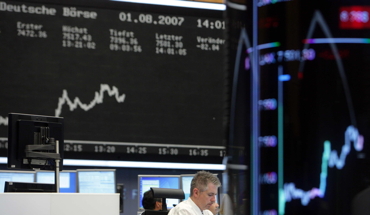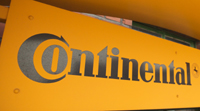VIPsight - October 2013
COMPANIES
DAX-listed banks face a 47 thousand million euro shortfall
 Pending the next Asset Quality Review (AQR) and the subsequent stress tests of capital in the accounts of European banks carried out by the European Central Bank, Deutsche Bank has calculated that the need for further capital that emerged from the AQR for the banks it covers amounts to 16 thousand million Euros. The diagnosis, though, is for the accumulated capital gap of 44 thousand million Euros that stems from the comprehensive implementation of Basle 3 and that has to be filled by the end of 2014. The forecast gap for Commerzbank is 2.6 thousand million Euros. The term capital gap is used when “a need for capital is perceived within an assessed need for capital, a stress test, an audit of the quality of a bank’s credit holdings, and then may be confirmed by an ad hoc audit on the part of an appropriate authority”. According to the ECB, the stress tests on the accounts are expected to be concluded in the first quarter of 2014. This will enable the European Banking Authority to begin its stress tests in the second quarter of 2014.
Pending the next Asset Quality Review (AQR) and the subsequent stress tests of capital in the accounts of European banks carried out by the European Central Bank, Deutsche Bank has calculated that the need for further capital that emerged from the AQR for the banks it covers amounts to 16 thousand million Euros. The diagnosis, though, is for the accumulated capital gap of 44 thousand million Euros that stems from the comprehensive implementation of Basle 3 and that has to be filled by the end of 2014. The forecast gap for Commerzbank is 2.6 thousand million Euros. The term capital gap is used when “a need for capital is perceived within an assessed need for capital, a stress test, an audit of the quality of a bank’s credit holdings, and then may be confirmed by an ad hoc audit on the part of an appropriate authority”. According to the ECB, the stress tests on the accounts are expected to be concluded in the first quarter of 2014. This will enable the European Banking Authority to begin its stress tests in the second quarter of 2014.
Schaeffler’s showdown with Continental
 Schaeffler has placed at least four percent of its holding in Continental with Goldman Sachs for a revenue of 950 million Euros. The eight million shares were put on offer to international investors in a fast track placing. Schaeffler sold the Bonds that have increased in value by 40% from the beginning of this year to 122.5 Euros each, far higher than the launch price of 75 Euros of four and a half years ago. The family company has made it known that at this point its holding is down to 46%. After a special redemption of 325 million with no limit on availability of resources, the company is still burdened with debts of some 9 thousand million Euros. On September 17, Klaus Rosenfeld did however state that in the long term Schaeffler intends to maintain its present level of holding. Continental is not expected to initiate any new forays on to the market over the next six months. Nel 2009 Schaeffler decidedly bit off more than it could chew when in 2009 it took over a competitor three times larger than itself. The CFO made no reference to any upcoming stock market flotation by Schaeffler.
Schaeffler has placed at least four percent of its holding in Continental with Goldman Sachs for a revenue of 950 million Euros. The eight million shares were put on offer to international investors in a fast track placing. Schaeffler sold the Bonds that have increased in value by 40% from the beginning of this year to 122.5 Euros each, far higher than the launch price of 75 Euros of four and a half years ago. The family company has made it known that at this point its holding is down to 46%. After a special redemption of 325 million with no limit on availability of resources, the company is still burdened with debts of some 9 thousand million Euros. On September 17, Klaus Rosenfeld did however state that in the long term Schaeffler intends to maintain its present level of holding. Continental is not expected to initiate any new forays on to the market over the next six months. Nel 2009 Schaeffler decidedly bit off more than it could chew when in 2009 it took over a competitor three times larger than itself. The CFO made no reference to any upcoming stock market flotation by Schaeffler.
Osram, Evonik and RTL admitted to MDAX
The share index working group of Deutsche Börse has made a number of changes in the selection criteria of the DAX family, which were introduced on September 23. The DAX index (with K+S as a member) is still the benchmark. Le shares of Osram Licht, Evonik Industries and RTL Group move upwards to MDAX. The stock of BayWa, Puma and SGL Carbon leave the index. The shares of CompuGroup Medical and Nemetschek move upwards to TEcDAX. Euromicron and Süss MicroTec shares leave the technological index. Every three months the stock exchange audits the make up of its indices and bases its decisions on how they classify on a given day on the trading of the previous month – in this case the month of August. In addition to the value on the floor is also the turnover of certain shares. The date for the next audit is set at December 4.
Municipalities against halving of dividends
 Despite the vote its representatives in the supervisory board cast in favour, the municipality shareholders of RWE are on the point of rising up against the halving of dividends announced in 2013. In the final analysis, the dividend is decided on by the shareholders’ meeting attended by a substantial representation of the municipalities that hold stock, says Lars Martin Klieve, municipal treasurer of the city of Essen who says he hopes the dividends will not be halved. Willi Loeven, treasurer of the city of Bottrop says he hopes the shareholders’ meeting will reject the distribution of 1 Euro per share instead of 2. Bottrop would not have the financial wherewithal to weather the storm that such a cut in revenue would unleash. For years, many cities and municipal companies have participated in up to 24% of the stock of the energy producer. The share, which once touched 100 Euros, has shed over a third of its value over the last five years. In 2008 and 2010 it was still worth 70. Presently, it stands at about 25 Euros.
Despite the vote its representatives in the supervisory board cast in favour, the municipality shareholders of RWE are on the point of rising up against the halving of dividends announced in 2013. In the final analysis, the dividend is decided on by the shareholders’ meeting attended by a substantial representation of the municipalities that hold stock, says Lars Martin Klieve, municipal treasurer of the city of Essen who says he hopes the dividends will not be halved. Willi Loeven, treasurer of the city of Bottrop says he hopes the shareholders’ meeting will reject the distribution of 1 Euro per share instead of 2. Bottrop would not have the financial wherewithal to weather the storm that such a cut in revenue would unleash. For years, many cities and municipal companies have participated in up to 24% of the stock of the energy producer. The share, which once touched 100 Euros, has shed over a third of its value over the last five years. In 2008 and 2010 it was still worth 70. Presently, it stands at about 25 Euros.
Windreich: winded
Wind farm planner Windreich went bankrupt at the beginning of September with debts of 400 million Euros. The company which had issued two pmi bonds for a total of 125 million Euros announced insolvency a mere three or four days after bankruptcy. At that point, the investors and the company’s business partner demanded that business consultant Werner Heer replace former managing director Willi Balz who affirms that he himself is committed for 250 million and who, no more than a few weeks ago was up-beat and optimistic. How much will be paid to Windreich creditors now depends on the funding that will be made available for the MEG 1 wind farm. The Swiss bank Sarasin is the biggest supplier of credit to the tune of 70 million Euros. A number of bond creditors have initiated proceedings against the private bank for not keeping investors sufficiently informed about the risks incurred in Windreich bonds.
Evotec: perfect partners
Evotec, the Tec-Dax biotechnology concern is about to embark on a joint venture with scientists from Harvard University to conduct research on diseases of the nervous system. Working hand in hand with stem cell specialists, the company intends to explore substances that actively combat the loss of nerve cells. At the same time, impetus will be given to inhibiting or at least slowing down the loss of the so-called motor neurons in Lou Gehrig’s disease, amniotrophic lateral sclerosis. This is the fourth project that Evotec has undertaken with specialists from Harvard.
Hornbach: DIY back on its feet
After a slack first half-year blighted by bad weather, sales in the summer months improved considerably for the Hornbach DIY stores. Turnover rose by almost 7% and total sales rose to 939 million Euros. The initial losses were recovered and year on year saw a rise in sales of 1.8% on last year. EBIT was 87 million Euros making Hornbach the third largest DIY group in Germany but in the second quarter, it was unable to recover the 30% losses of the first quarter, the difference being only 12.5%. According to management, this result, too, will change by the end of the year.
Hornbach is forecasting an EBIT at year end at the very least the same as last year.
The group has its sights set on extending its markets; this year will include Netherlands, Sweden, and Slovakia. Hornbach has no intention of taking over its bankrupt competitor Praktiker, despite the interest there could be for certain areas.
The company is prime-standard listed.















